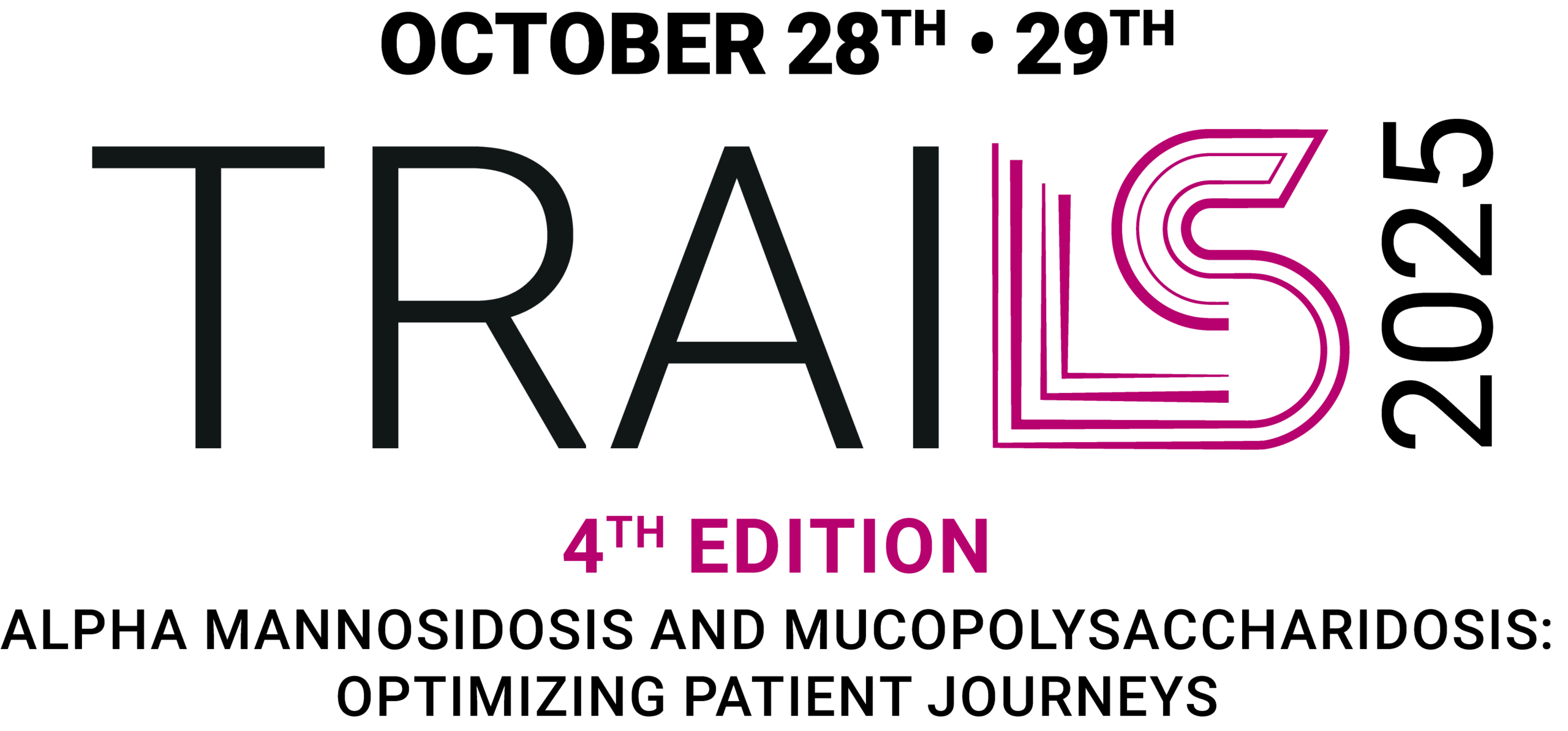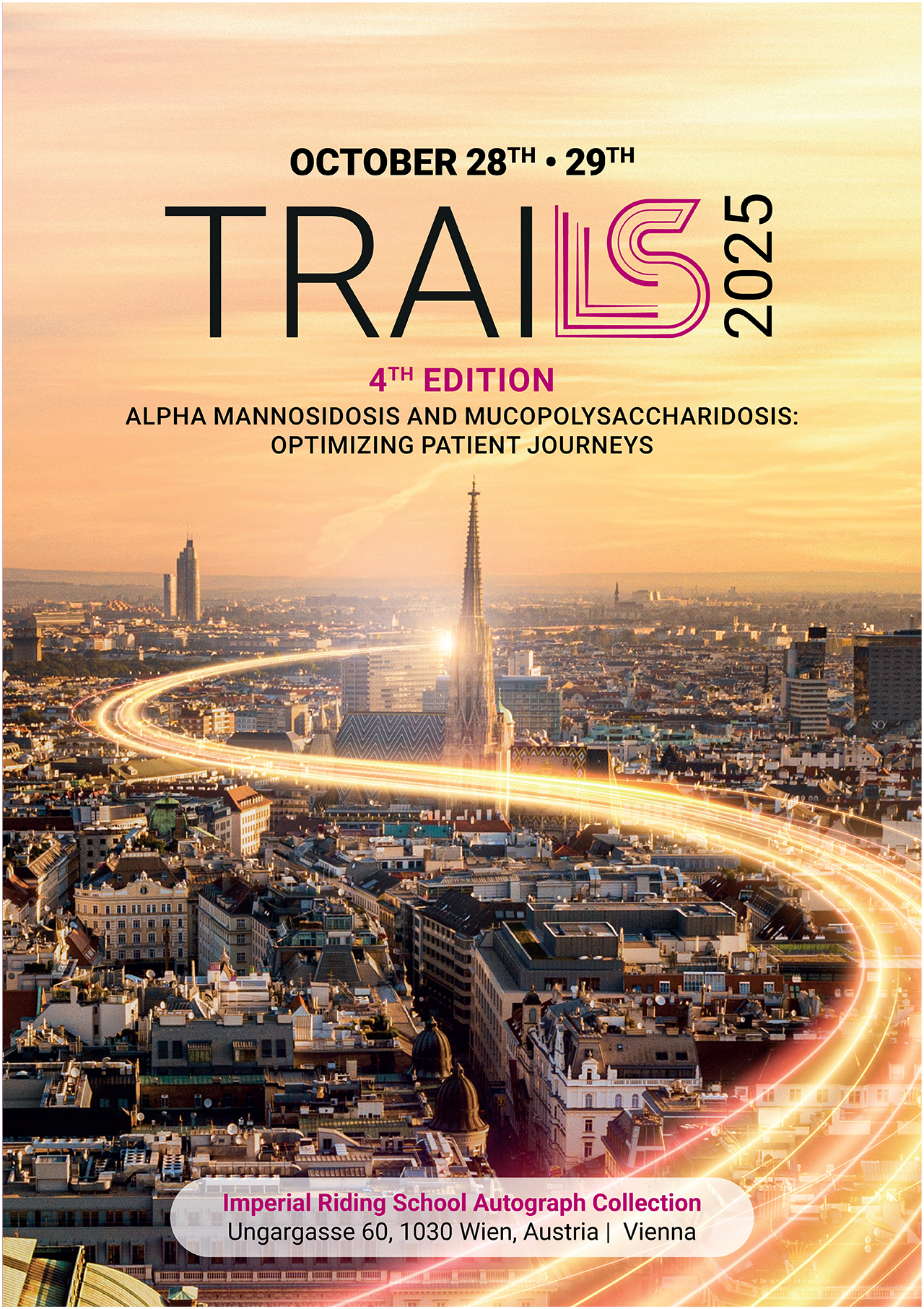RATIONALE
ALPHA MANNOSIDOSIS AND MUCOPOLYSACCHARIDOSIS: OPTIMIZING PATIENT JOURNEYS
Alpha Mannosidosis and Mucopolysaccharidoses (MPS) present a broad and heterogeneous clinical spectrum that often challenges timely diagnosis and effective care coordination. The non-specific and overlapping nature of their symptoms with other disorders contributes to diagnostic delays and under-recognition, particularly in healthcare systems lacking dedicated tools or structured pathways.
Given the progressive course and multisystem involvement of these diseases, a coordinated, multidisciplinary approach is essential to ensure early intervention and sustained management. Advances in newborn screening, digital health technologies, and artificial intelligence offer promising avenues to support earlier identification and more accurate patient stratification..
This international educational event brings together experts from diverse specialties to share real-world experiences, discuss evolving therapeutic strategies, and highlight the importance of PROMs in evaluating outcomes and shaping access to care. By fostering clinical collaboration and awareness, the program aims to enhance the quality, continuity, and equity of care for patients affected by rare lysosomal storage disorders..
Learning Objectives
Recognize key clinical features of Alpha Mannosidosis and Mucopolysaccharidoses (MPS I, II, IVA, IVB) to support early and differential diagnosis
• Understand diagnostic challenges in Lysosomal Storage Disorders and explore available tools and strategies to reduce diagnostic delay, including AI and newborn screening programs.
• Evaluate current therapeutic options, including long-term data on Velmanase Alfa, and discuss unmet needs in the treatment of skeletal complications.
• Promote a multidisciplinary approach in patient care through interactive case simulations and cross-specialty collaboration.
• Appreciate the role of patient-reported outcomes (PROMs) in assessing therapeutic impact and guiding reimbursement decisions
Target Audience
• Pediatricians
• Clinical Geneticists
• Diabetologists
• Neurologists
• Internal Medicine Physicians
• Orthopedic Surgeons
• Ophthalmologists
• Otolaryngologists
• Hematologists
• Nephrologists
• Clinicians specialized in Hereditary Metabolic Diseases






